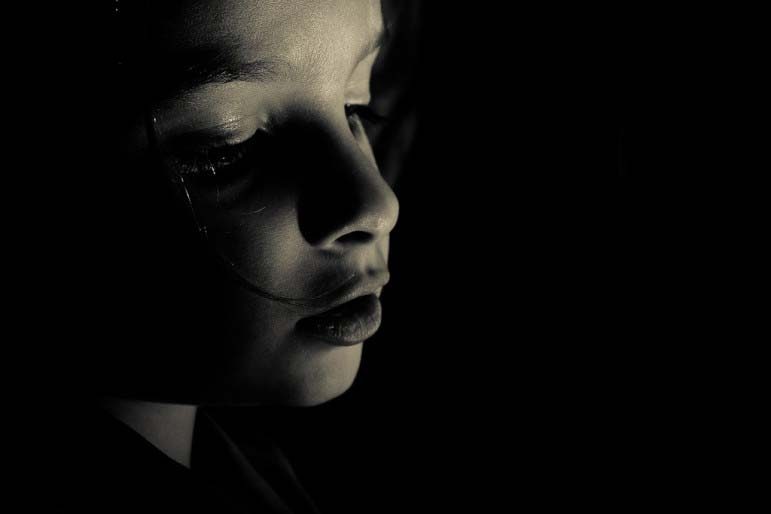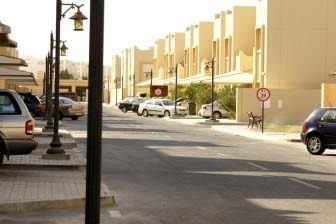
With reporting from Riham Sheble
If you believe your child was molested in Qatar, what should you do?
For one expatriate family in Qatar recently, the answer ultimately was to leave the country for good.
But that was only after they tried seeking support at the hospital, with counseling centers and the police.
“I feel very helpless. I haven’t been given any point of contact, or any direction on what to do,” father Mr. Stewart (not his real name) recently told Doha News. Stewart said his 7-year-old daughter was molested during a sleepover at a friend’s house in November.
Since then, the family said there has been one lapse after another in terms of support services here, which have compounded the trauma of the initial incident.
Lack of coordination
The family’s experiences aren’t unique and and comes several years after Qatar identified a coordination gap between health care officials and law enforcement authorities that hinders the ability to hold child abusers here accountable.
According to Qatar’s National Development Strategy 2011-16, the country is considering adopting a number of strategies to improve response to abuse cases, including:
“The establishment of a data registry centre for child abuse and neglect, child advocacy programmes, a public awareness campaign and improving the lines of communication between hospitals and relevant authorities…
This approach will be centered on developing a mechanism to detect early child abuse and neglect by increasing the number of social workers in schools, youth awareness programmes and school hotlines to ease and encourage reporting.”
Hospital support
It’s unclear what – if any – policies and procedures health care officials in Qatar follow when abuse is reported.

Despite repeated requests for information, neither Hamad Medical Corp., nor Sidra Medical Research Center could provide information to Doha News about what procedures are meant to used when dealing with reported cases of child abuse in Qatar.
When the victim told her parents about the molestation incident the morning after the sleepover, the Stewarts followed the advice of a nurse friend and took her to the Pediatric Emergency Center in Al Sadd.
The girl’s father said the doctors were sympathetic, but the visit was “not a good experience.”
His daughter was eventually brought into a “cold and clinical” room for a physical examination by several male doctors as well as other individuals – possibly student doctors, as their role was never explained, the man said.
The young girl was crying in the crowded room at this point, and her parents decided not to subject her to the examination under those circumstances and left the hospital.
At no point, the father said, were they asked if the incident had been reported to the police or given any advice or information on how to follow up with the authorities.
Growing number of cases
This is despite the fact that, according to a 2013 survey by the Supreme Council for Family Affairs, one in five children living in Qatar is subject to some form of abuse.

Those cases most commonly occur at home or at school, and sexual assaults typically make up a very small fraction of reported child abuse incidents in Qatar, the survey found.
But health officials in Qatar have also said that child abuse is severely underreported here, due to bureaucratic hurdles, insufficiently trained healthcare providers and a reluctance to break cultural taboos.
In terms of the medical community and society at large, more should be done to acknowledge that abuse takes place – even in Arab communities, one local physician recently urged, adding that denial is a common response.
“They can’t believe their ears,” Dr. Khalid Al Sadi, a consultant at the Pediatric Emergency Center in Al Sadd told a conference earlier this month, according to the Peninsula.
This unwillingness to address the problem can have devastating effects on victims and their families.
After filing a police report and the aborted doctor’s visit, the Stewart family sought help for their daughter from welfare officials.
They made an appointment with a psychologist at HMC but, after their experience in the pediatrics department, decided to meet the medical professional for an initial visit without their daughter. There, they were asked why they would leave her in the care of another adult.
“It made us feel guilty,” the father said, adding that he suspects that the psychologist – who was wearing a niqab – didn’t understand how common it is for children in many western countries to have sleepovers with their friends.
Several weeks later, Stewart said he had a similar experience at the offices of the Qatar Foundation for the Protection of Women and Children.
“It was atrocious,” he said, recalling that the conversation included questions such as “Why did you have a sleepover?” and “What did you expect?”
Legal concerns
When the family filed a complaint with the Al Rayyan police department, the parents were asked to collect the clothing the girl was wearing the night of the sleepover, which were placed it in a plastic bag and given to investigators.

The accused was apparently arrested in December, but released less than two weeks later, the victim’s father said.
A legal source told Doha News that it is possible that bail could be granted in this case. The source added that it appeared prosecutors were still conducting their investigation and that no trial dates had been scheduled.
The victim’s father is currently unaware of the investigation’s status. He’s had no contact with the public prosecutor’s office, but heard indirectly through his wife’s employer that they are awaiting the results of forensic tests on his daughter’s clothes that were to be performed in the UK.
He said more communication from authorities, sensitive to the nature of the case, would have made the process less traumatic for his family.
The man also pointed to the presence in other countries of social workers who can act as advocates for abuse victims, helping them navigate the legal system while directing them to counselors and other medical professionals.
Prior to leaving Qatar for good, the man said he and his family felt “alone and unsupported.” As the weeks went by without any updates, he said they became less optimistic about the prospects of a conviction.
“The system let us down when it mattered most,” he said.
Thoughts?







